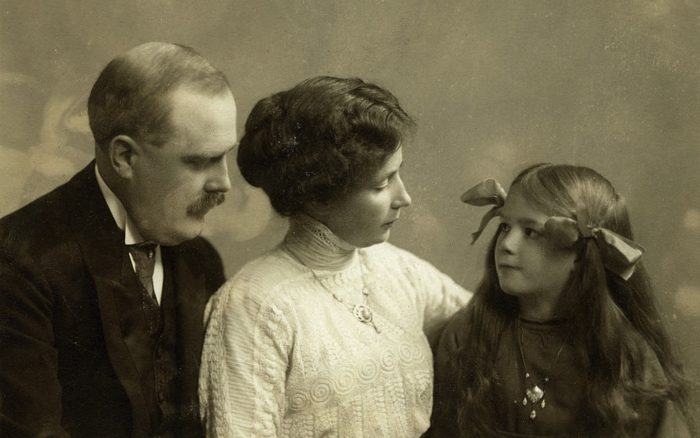I am in my 40s and grew up in an alcoholic home.
I live and have lived in a state of hypervigilance, always waiting for something bad to happen. Things can be going really well, and I’ll be watching behind my back for the perpetrator to appear.
I can’t relax when I should be chilling out and having fun. I am always watching the door and waiting for a fight to escalate.
I am always quietly waiting to be “in trouble” or reprimanded. So even in a work situation, I can’t quite relax and be confident in my duties. I am in a place of hypervigilance here as well.
Hypervigilance is a state of increased alertness. If you’re in a state of hypervigilance, you’re extremely sensitive to your surroundings. It can make you feel like you’re alert to any hidden dangers, whether from other people or the environment. Often, though, these dangers are not real.
Driving in the car works the same way. I am not a peaceful person to ride in the car with. I am constantly grabbing the handle above, waiting for an accident. I am always thinking of the worst-case scenario, preparing my body for what’s to come.
For many years, I had to fight through the desire not to leave the house for any reason. The obsessive thoughts were strong, and I just knew that if I left the house that day, it would be the day I would be in a horrible accident. I had to work through the irrational fears in many ways, but, for a time, it was medication and therapy.
Life was so unpredictable when I was a kid. Everything would be fine; everyone would have dinner in their separate areas of the apartment—usually, my mom and her boyfriend in front of the TV and me in my room. I may have even heard laughter and elevated conversation in a jovial manner.
I would fall asleep thinking everything was going to be okay and then be woken in the middle of the night by screams, cries, and yelling. I rarely could make it out of my room. Most of the time, I was trapped there as the fighting ensued in the front area of the apartment. And we were on the second story facing the parking lot, which made me feel even more trapped.
Of course, no child wishes for Child Protection Services to get involved in their families, but I wonder how they may have changed if they had—if there was a threat of me being taken away. I think if the police could have asked me how I was doing and pulled me aside, it would have shaken my mother up enough to see what was happening and how I was being affected.
In retrospect, it’s hard to see outside of that alcoholic, codependent, drug, and alcohol-induced fighting. They were so completely in their own worlds. I truly don’t think they could understand how their abusive nature and fighting were screwing me up and how it would continue to change my brain chemistry and, in turn, my whole life.
I started to lose respect for my parents, primarily my mom. I saw her in a different light. I thought to myself, “I will never live this way.”
Here are some general traits people who have grown up in alcoholic homes may feel:
>> Afraid of being yelled at or ridiculed
>> Angry, sad, frustrated
>> Being afraid of any type of criticism
>> Feeling small, less than, abandoned
>> Feeling empty inside, at a loss
>> In survival-mode
>> Frightened by angry people
>> Low self-esteem or lack of confidence
>> Hard time feeling feelings and connecting to those emotions
>> Desire to isolate and be in a cocoon, away from others
>> Scared, not enough, poor, less than, and just deeply sad
>> Afraid you will never get what you want or need
>> Fear of abandonment
>> A tough bravado that no one can touch, hurt, or harm you (self-protective behavior)
>> Uncomfortable in your own skin
>> A strong desire to run away, escape, and to get out of ourselves (through eating, drinking, and a myriad of other ways)
We may have a hard time asking for help; when we asked in the past, we never received what we needed, so we’ve stopped asking. We have an attitude of “I will get mine.”
I will do it myself, even if I have to lie, cheat, or steal.
This was the case for me for many years. I could not see outside of myself and how my behavior affected others. My parents have long since passed, and I am still affected by their behavior and dysfunction.
They say that alcoholism is a family disease, as it doesn’t just affect the person drinking. It ripples out to everyone involved and can last for generations.
I hope that by getting to the root of the effects of alcoholism and family dysfunction, we can begin to overcome when we see our common traits and begin to take the shame out of talking about the feelings, emotions, and generalized feelings of being “different.”
There are hope and comradery to be found in Adult Children of Alcoholics groups, and therapy can also be beneficial. Taking apart the mechanisms we have used for self-protection and realizing we are not alone can be huge steps.
It’s a forward movement toward victory and finally feeling free to live our lives—unbound by our alcoholic family members.
~
“A dysfunctional family is a family in which conflict, misbehavior, and often child neglect or abuse on the part of individual parents occur continuously and regularly, leading other members to accommodate such actions. Children sometimes grow up in such families with the understanding that such a situation is normal.
Dysfunctional families are primarily a result of two adults, one typically overtly abusive and the other codependent, and may also be affected by addictions (such as substance abuse, such drugs including alcohol), or sometimes by an untreated mental illness.
Dysfunctional parents may emulate or over-correct from their own dysfunctional parents. In some cases, the dominant parent will abuse or neglect their children, and the other parent will not object, misleading a child to assume blame.” ~ Wikipedia
AUTHOR: MELISSA STEUSSY
IMAGE: WIKIMEDIA


This account does not have permission to comment on Elephant Journal.
Contact support with questions.